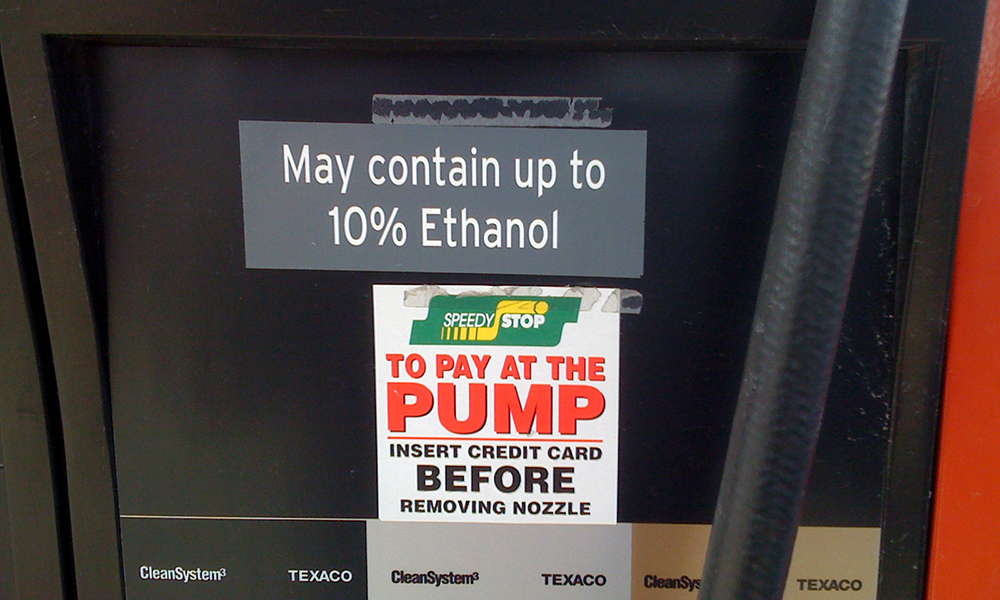News Archive
Bill Jones Interviewed on WXXI News Radio about "Potentially Better Ethanol"
 Connections, a radio show with WXXI News, featured Professor Jones, when their Monthly Science Roundtable asked the question: "What if science could fix one of our country's big energy mistakes?" Evan Dawson, host of Connections with WXXI News, states that: "A decade ago, government was all-in on corn-based ethanol. This produced bad results on a number of levels: environmental, energy efficiency, the impact on food and crop rotation, etc. But now a team led by a researcher at the University of Rochester is zeroing in on a method to make ethanol much more efficient, and much less corrosive. Will it work?"
Connections, a radio show with WXXI News, featured Professor Jones, when their Monthly Science Roundtable asked the question: "What if science could fix one of our country's big energy mistakes?" Evan Dawson, host of Connections with WXXI News, states that: "A decade ago, government was all-in on corn-based ethanol. This produced bad results on a number of levels: environmental, energy efficiency, the impact on food and crop rotation, etc. But now a team led by a researcher at the University of Rochester is zeroing in on a method to make ethanol much more efficient, and much less corrosive. Will it work?"
 Evan Dawson, host of Connections with WXXI News, states that:
Evan Dawson, host of Connections with WXXI News, states that:
"A decade ago, government was all-in on corn-based ethanol. This produced bad results on a number of levels: environmental, energy efficiency, the impact on food and crop rotation, etc.
But now a team led by a researcher at the University of Rochester is zeroing in on a method to make ethanol much more efficient, and much less corrosive. Will it work?"
"Connections: Monthly Science Roundtable - A Potentially Better Ethanol", is now available as a pod cast, and includes interviews with Bill Jones, Ph.D., Professor of Chemistry, University of Rochester, and Tom Baker, Ph.D., Professor of Chemistry, University of Ottawa.

For more information, also see an article in UR News, by Peter Iglinski, "More efficient way of converting ethanol leads to better alternative fuel", which included,
"Ethanol, which is produced from corn, is commonly-used as an additive in engine fuel as a way to reduce harmful emissions and scale back U.S. reliance on foreign oil. But since ethanol is an oxygenated fuel, its use results in a lower energy output, as well as increased damage to engines via corrosion.
But now a research team, led by William Jones at the University of Rochester, has developed a series of reactions that results in the selective conversion of ethanol to butanol, without producing unwanted byproducts.
“Butanol is much better than ethanol as an alternative to gasoline,” said Jones, the C.F. Houghton Professor of Chemistry. “It yields more energy, is less volatile, and doesn’t cause damage to engines.”
In fact, Jones was able to increase the amount of ethanol converted to butanol by almost 25 percent over currently used methods. Jones describes his process in a paper just published in the Journal of the American Chemical Society."
The research by Jones was carried out under the NSF (National Science Foundation) support of the Center for Enabling New Technologies through Catalysis, an NSF Center for Chemical Innovation program. (CHE-1205189)
This work has also been highlighted in:
- J. Am. Chem. Soc., "Highly Selective Formation of n-Butanol from Ethanol through the Guerbet Process: A Tandem Catalytic Approach"
- UR News: "More efficient way of converting ethanol leads to better alternative fuel"
- International Business Times (IBTimes): "New ethanol provides more energy, less harm to engines as gasoline alternative"
- Courthouse News Service: "Study Raises Hopes for Cleaner Gas Alternative"
